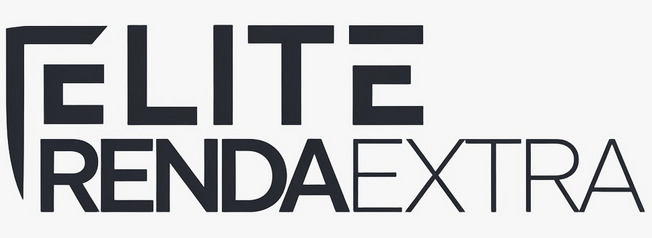Navigating the world of personal finance can sometimes feel like charting a course through choppy waters. When significant expenses loom on the horizon, understanding your borrowing options is key. A personal loan can be a versatile financial tool, offering a lump sum of cash that you repay in fixed monthly installments over a set period.
Unlike specific-purpose loans like mortgages or auto loans, personal loans offer flexibility. This means you can often use the funds for a wide array of needs, making them an attractive option for managing substantial, one-time costs. Let’s explore some of the most common and sensible ways individuals leverage personal loans to achieve their financial goals and cover major expenditures.
Consolidating High-Interest Debts
One of the most popular uses for a personal loan is debt consolidation. If you’re juggling multiple credit card balances, store cards, or other high-interest debts, a personal loan can simplify your finances. By taking out a single loan to pay off these various debts, you’re left with just one monthly payment to manage, potentially at a lower overall interest rate.
Benefits of Debt Consolidation with a Personal Loan:
- Lower Interest Rates: Personal loans often come with lower interest rates compared to credit cards, which can save you a significant amount of money over time.
- Simplified Payments: Managing one payment instead of several can reduce stress and the likelihood of missed payments.
- Fixed Repayment Schedule: You’ll know exactly when your debt will be paid off, providing a clear path to becoming debt-free.
- Potential Credit Score Improvement: Reducing your credit utilization ratio (the amount of credit you’re using compared to your total available credit) can positively impact your credit score.
However, it’s crucial to ensure the personal loan’s interest rate is indeed lower than the average rate of your existing debts and to avoid accumulating new debt on the cards you’ve just paid off.
Financing Home Improvements and Renovations
Undertaking home improvements can significantly increase your property’s value and enhance your living experience. Whether it’s a kitchen remodel, a bathroom upgrade, or a necessary roof repair, these projects can be costly. A personal loan can provide the upfront capital needed to get these projects off the ground without requiring you to tap into home equity, as a HELOC (Home Equity Line of Credit) would.
Considerations for Home Improvement Loans:
- Project Scope: Clearly define your project and get accurate cost estimates.
- Return on Investment (ROI): Some renovations offer a better ROI than others. Research which improvements add the most value.
- Loan Amount: Borrow only what you need to complete the project to avoid unnecessary debt.
Comparing Funding Options for a Modest Home Renovation
| Feature | Personal Loan | Credit Card | HELOC (Home Equity Line of Credit) |
|---|---|---|---|
| Typical Interest Rate | Fixed, potentially lower than credit cards | Variable, often high | Variable, often lower than personal loans but secured by home |
| Loan Security | Usually unsecured | Unsecured | Secured by your home |
| Funding Speed | Relatively fast (days) | Instant (if existing card) | Slower (weeks, requires appraisal) |
| Repayment Structure | Fixed monthly payments | Minimum payments, flexible | Interest-only period possible, then principal + interest |
| Best For | Defined projects, clear budget, good credit | Small, short-term expenses, rewards points | Larger, ongoing projects, have sufficient home equity |
Covering Unexpected Medical Expenses
Medical emergencies or significant healthcare costs can arise unexpectedly, and they are often substantial. While health insurance helps, out-of-pocket expenses like deductibles, co-pays, or treatments not fully covered can still be a burden. A personal loan for medical expenses can provide a way to pay these bills promptly, avoiding potential collections or damage to your credit score.
When considering a loan for medical bills, it’s wise to first negotiate with the healthcare provider for a payment plan or potential discounts, as these might offer more favorable terms than a loan.
Funding Major Life Events or Purchases
Life is full of significant milestones and purchases that can stretch your budget. Personal loans can help finance these without draining your savings.
Examples Include:
- Weddings: From the venue to the caterer, wedding costs add up. A personal loan can help manage these expenses.
- Moving Expenses: Relocating, especially long-distance, can be expensive with costs for movers, transportation, and deposits.
- Major Appliance Purchases: If your refrigerator or washing machine suddenly breaks down, a personal loan can cover the replacement cost.
- Vehicle Repairs: While auto loans cover vehicle purchases, significant, unexpected car repairs might be funded with a personal loan if other options aren’t suitable.
For any major purchase or event, it’s essential to budget carefully and borrow responsibly. Ensure the monthly loan payments fit comfortably within your financial plan.
Emergency Funding (Use with Caution)
While ideally, an emergency fund should cover unforeseen circumstances, sometimes the need outstrips savings. In such cases, a personal loan might be considered for urgent, necessary expenses like emergency travel or critical home repairs (e.g., a burst pipe). However, relying on loans for frequent emergencies isn’t sustainable. Building a robust emergency fund should always be a priority.
Key Considerations Before Taking a Personal Loan
Before applying for a personal loan, it’s vital to assess your financial situation and understand the loan’s terms thoroughly.
- Assess Your Need: Is the expense truly necessary? Can it be postponed or funded through savings?
- Check Your Credit Score: A higher credit score generally qualifies you for lower interest rates. Know where you stand.
- Shop Around: Compare offers from different lenders (banks, credit unions, online lenders) to find the best interest rates and terms. Pay attention to the Annual Percentage Rate (APR), which includes interest and fees.
- Read the Fine Print: Understand all fees (origination fees, prepayment penalties), the loan term, and the total cost of borrowing.
- Budget for Repayments: Ensure you can comfortably afford the fixed monthly payments without straining your budget. Defaulting on a loan can severely damage your credit.
- Explore Alternatives: Could a 0% APR credit card (for a short term), a secured loan, or even assistance programs be a better fit for your specific need?
Personal loans can be a powerful financial instrument when used judiciously for significant expenses. They offer a structured way to finance major costs, consolidate debt, or handle emergencies. However, like any form of debt, they come with responsibilities. By carefully evaluating your needs, understanding the terms, and ensuring the repayments fit your budget, you can make a personal loan work for you. For more detailed information on borrowing, it’s beneficial to research and understand the various uses for a personal loan from reliable consumer resources.



